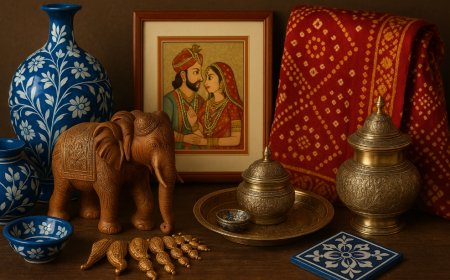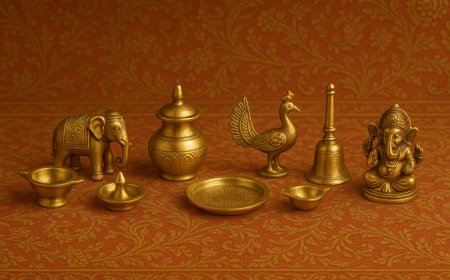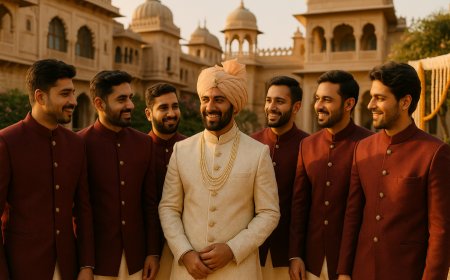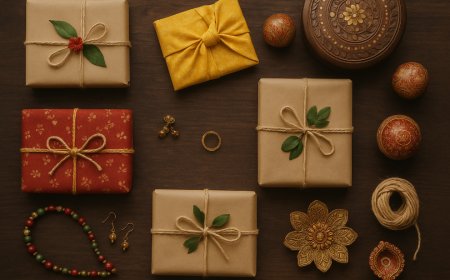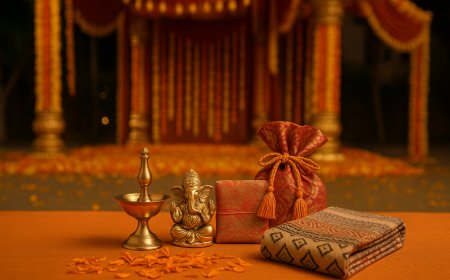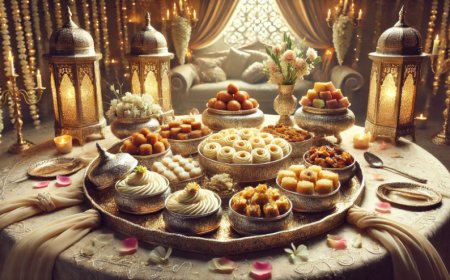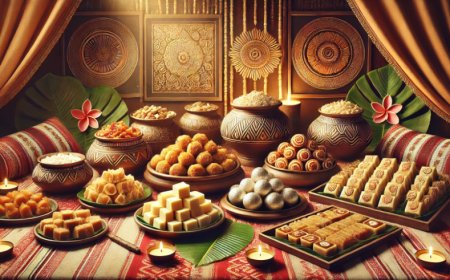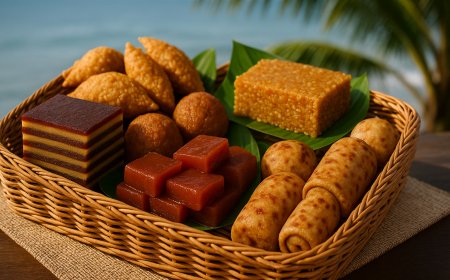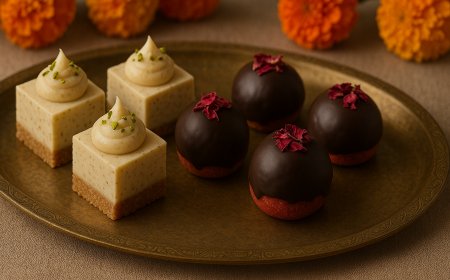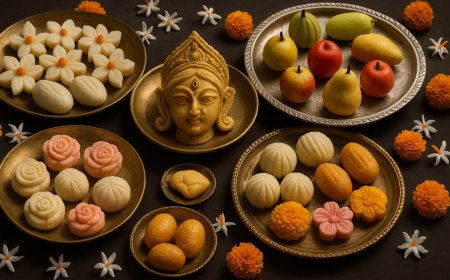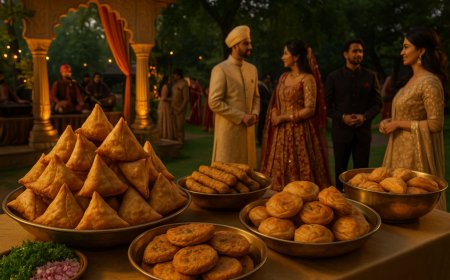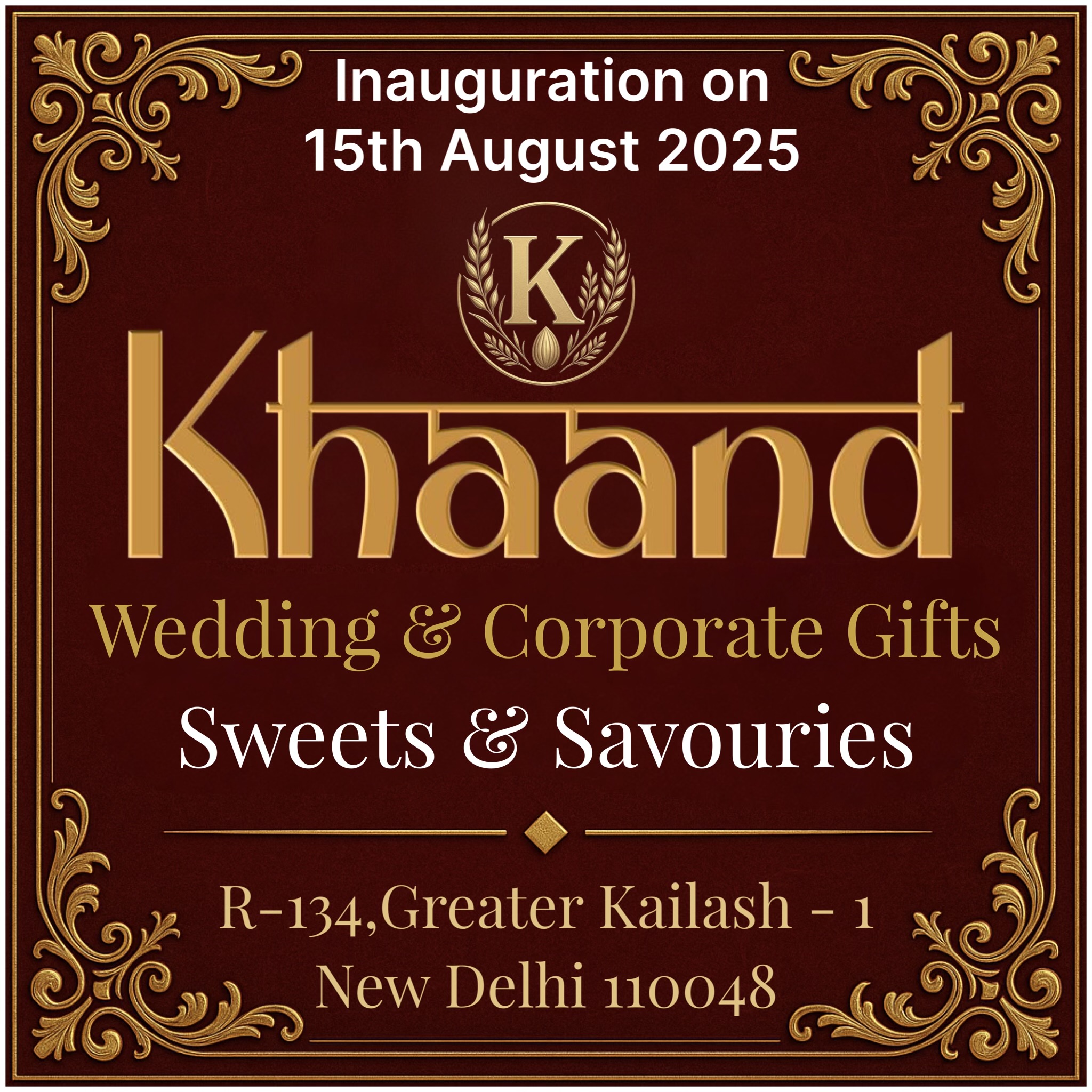What to Gift the Couple When You're Attending a Wedding Outside Your Culture
Navigate cross-cultural wedding gift-giving with confidence. Discover appropriate gifts for Hindu, Islamic, Jewish, Chinese, and other cultural weddings, plus expert tips on cultural sensitivity and traditional significance.

Attending a wedding outside your cultural background presents both an incredible opportunity to experience rich traditions and the delicate challenge of showing respect through appropriate gift-giving. The act of selecting a wedding gift becomes more than just choosing something beautiful or useful—it transforms into a gesture of cultural appreciation, respect, and genuine celebration of the couple's heritage. Understanding the nuances of different wedding traditions, from the symbolic significance of specific items to the cultural taboos that should be avoided, demonstrates thoughtfulness that couples and their families deeply appreciate.
Whether you're navigating the complexities of Hindu wedding symbolism, understanding the significance of monetary gifts in Chinese celebrations, exploring the meaningful traditions of Jewish ceremonies, or respecting the values emphasized in Islamic unions, this comprehensive guide will equip you with the cultural sensitivity and practical knowledge needed to select gifts that honor both the couple and their heritage. You'll discover universal principles that apply across cultures, specific recommendations for major wedding traditions, and expert tips for ensuring your gift reflects genuine respect and celebration.
Cultural & Regional Significance
Historical Background
The tradition of wedding gift-giving spans across virtually every culture in human history, with each society developing unique customs that reflect their values, spiritual beliefs, and social structures. Ancient civilizations established gift-giving protocols that served multiple purposes: demonstrating respect for the union, providing practical support for the new household, and reinforcing community bonds. These traditions evolved to incorporate religious symbolism, family honor, and cultural identity preservation.
Archaeological evidence from ancient Mesopotamia, Egypt, and the Indus Valley reveals sophisticated gift-giving customs that included household items, livestock, land, and precious metals. The Romans introduced the concept of the "dowry" system, while ancient Chinese traditions emphasized gifts that would bring prosperity and fertility. Medieval European customs established the foundation for modern Western wedding registries, emphasizing practical household items that would help establish the new family unit.
The spiritual significance of wedding gifts varies dramatically across cultures but consistently emphasizes themes of blessing, protection, prosperity, and fertility. Hindu traditions incorporate gifts that honor specific deities and invoke divine blessings, while Islamic customs focus on items that support the couple's spiritual and material well-being. Jewish traditions emphasize community support and the building of a Jewish home, while Christian customs often reflect themes of love, unity, and God's blessing on the marriage.
Regional Variations
South Asian Traditions: Hindu, Sikh, and Buddhist weddings place tremendous emphasis on gifts that carry spiritual significance and practical value. Traditional items include brass or silver artifacts for religious ceremonies, clothing for various rituals, jewelry symbolizing prosperity, and household items blessed by family elders. The concept of "shagun" (auspicious gifts) ensures that presents carry positive energy and divine blessings for the couple's future.
East Asian Customs: Chinese, Japanese, and Korean wedding traditions emphasize gifts that promote harmony, prosperity, and family continuity. Red and gold colors dominate gift choices, with monetary gifts presented in specific denominations and special envelopes. Tea sets, decorative items featuring auspicious symbols, and practical household goods that support family building are highly valued.
Middle Eastern Practices: Islamic wedding traditions across various countries emphasize gifts that support the couple's religious observance and household establishment. Prayer rugs, religious texts, kitchenware for halal cooking, and decorative items featuring Arabic calligraphy reflect cultural values. Gold jewelry and monetary gifts are common, with specific etiquette governing presentation and amounts.
European Heritage: Jewish weddings incorporate traditions emphasizing community support and religious observance, with gifts often including ritual items, books, household goods, and charitable donations made in the couple's honor. Christian traditions vary by denomination but generally focus on items that support the couple's spiritual journey and practical needs.
African Traditions: Diverse African wedding customs often emphasize gifts that honor ancestral traditions, support extended family networks, and celebrate cultural identity. Textiles, traditional crafts, ceremonial items, and contributions to community celebrations reflect values of Ubuntu (interconnectedness) and family solidarity.
Modern Adaptations
Contemporary cross-cultural weddings have created new frameworks for gift-giving that blend traditional elements with modern practicality. Many couples now provide cultural guidance on their invitations or wedding websites, helping guests understand appropriate gift choices. The rise of multicultural marriages has led to fusion celebrations that honor multiple traditions, requiring gift strategies that respect all cultural backgrounds involved.
Global connectivity has made authentic cultural items more accessible, allowing guests to source appropriate traditional gifts regardless of their location. Online platforms now offer culturally curated gift collections, expert consultations, and educational resources that help navigate complex cultural considerations. Many modern couples appreciate when guests make efforts to understand and honor their heritage through thoughtful gift selection.
Detailed Guide & Recommendations
Types & Varieties
Traditional Cultural Artifacts: Authentic items that reflect the couple's heritage carry special significance. These include religious or ceremonial objects, traditional textiles, cultural artwork, handcrafted items from the couple's ancestral regions, and symbolic decorative pieces. The key is ensuring authenticity and understanding the proper use and significance of such items.
Symbolic Meaningful Gifts: Items that carry universal positive symbolism across cultures include plants representing growth and prosperity, artwork featuring themes of love and unity, books about the couple's cultural heritage, music or instruments from their traditions, and items that celebrate their shared interests while honoring their background.
Practical Household Items: Modern necessities that support the couple's lifestyle while respecting cultural preferences include kitchen equipment suitable for their dietary traditions, home decor that complements their cultural aesthetic, quality linens and textiles in appropriate colors, storage solutions for cultural items, and technology that supports their lifestyle needs.
Experience and Service Gifts: Thoughtful alternatives to physical items include contributions to cultural experiences, donations to charities important to their community, subscriptions to services that connect them with their heritage, classes or workshops related to their traditions, and travel funds for visiting ancestral homelands.
Selection Criteria
When choosing gifts for cross-cultural weddings, research the specific traditions of the couple's background through reliable sources, family members, or cultural consultants. Consider religious requirements such as dietary laws that affect kitchen gifts, religious symbols that should be included or avoided, ceremonial items that require proper understanding, and spiritual significance of colors, materials, and designs.
Practical considerations include the couple's lifestyle and living situation, their level of traditional observance versus modern adaptation, their personal interests within their cultural framework, the formality level of the celebration, and your relationship with the couple and their families. Budget considerations should account for quality over quantity, as authentic cultural items often carry premium prices but greater significance.
Cultural sensitivity requires avoiding items that might be considered inappropriate, understanding the proper presentation and packaging for your chosen gifts, recognizing whether certain gifts should be given privately or publicly, and ensuring that your gift selection doesn't inadvertently offend religious or cultural sensibilities.
Presentation & Packaging Ideas
Traditional Wrapping Methods: Research culture-specific presentation styles, including appropriate colors, materials, and decorative elements. Many cultures have specific requirements for gift wrapping that carry symbolic meaning. Understanding these traditions shows exceptional respect and consideration.
Universal Elegant Approaches: When unsure about specific traditions, opt for elegant, neutral presentations using high-quality materials in universally positive colors like gold, cream, or soft pastels. Include a thoughtful card explaining your gift choice and expressing genuine celebration of their heritage.
Contemporary Fusion Styles: Modern approaches that blend traditional elements with contemporary aesthetics often work well for couples who embrace both heritage and modernity. This might include traditional colors with modern packaging techniques or contemporary items presented with traditional ceremonial elements.
Top Delhi Vendors & Suppliers
Premium Category Vendors
1. Heritage Cultural Gifts
- Location: 45, Khan Market, New Delhi - 110003
- USP: Specializes in authentic cultural artifacts from multiple traditions, offers cultural consultation services, maintains relationships with traditional artisans worldwide
- Specialization: Multi-cultural wedding gifts, religious artifacts, traditional textiles, custom cultural gift curation
- Rating: 4.9/5 stars based on customer reviews
- Contact Details:
- Phone: +91-9876543301
- WhatsApp: +91-9876543302
- Email: heritage@culturalgifts.com
- Website: www.heritagecultural.in
- Social Media:
- Instagram: @heritage_cultural_gifts
- Facebook: Heritage Cultural Gifts Delhi
- Operating Hours: Monday-Saturday 10:00 AM - 8:00 PM, Sunday 12:00 PM - 6:00 PM
- Price Range: ₹1000 - ₹25,000 per gift
- Specialty: Cultural authenticity verification and consultation services
2. Global Traditions Emporium
- Location: 23, Connaught Place, New Delhi - 110001
- USP: Curated collection from 50+ countries, expert staff trained in cultural sensitivities, offers gift presentation services
- Specialization: International wedding gifts, cross-cultural artifacts, traditional jewelry, ceremonial items
- Rating: 4.8/5 stars based on customer reviews
- Contact Details:
- Phone: +91-9876543303
- WhatsApp: +91-9876543304
- Email: global@traditionsemporium.com
- Website: www.globaltraditions.co.in
- Social Media:
- Instagram: @global_traditions_delhi
- Facebook: Global Traditions Emporium
- Operating Hours: Daily 10:00 AM - 9:00 PM
- Price Range: ₹800 - ₹20,000 per gift
- Delivery: Worldwide shipping with cultural packaging
Mid-Range Category Vendors
3. Multicultural Gift Gallery
- Location: Central Market, Lajpat Nagar IV, New Delhi - 110024
- USP: Affordable authentic options, cultural gift guides, workshops on cross-cultural etiquette
- Specialization: Budget-friendly cultural gifts, educational materials, traditional crafts, symbolic items
- Rating: 4.5/5 stars based on customer reviews
- Contact Details:
- Phone: +91-9876543305
- WhatsApp: +91-9876543306
- Email: gallery@multiculturalgifts.com
- Website: www.multiculturalgiftgallery.in
- Operating Hours: Monday-Saturday 11:00 AM - 8:00 PM
- Price Range: ₹300 - ₹5000 per gift
- Educational Service: Free cultural consultation for gift selection
4. Unity Celebrations
- Location: 67, South Extension Part I, New Delhi - 110049
- USP: Fusion gift concepts, personalization services, cultural wedding planning support
- Specialization: Contemporary cultural gifts, fusion items, personalized traditional artifacts, modern interpretations
- Rating: 4.4/5 stars based on customer reviews
- Contact Details:
- Phone: +91-9876543307
- WhatsApp: +91-9876543308
- Email: unity@celebrations.com
- Operating Hours: Tuesday-Sunday 10:30 AM - 7:30 PM
- Price Range: ₹500 - ₹8000 per gift
Budget-Friendly Options
5. Cultural Connections
- Location: Main Bazaar, Paharganj, New Delhi - 110055
- USP: Tourist-friendly pricing, basic cultural items, English-speaking staff with cultural knowledge
- Specialization: Entry-level cultural gifts, souvenir-quality traditional items, basic ceremonial objects
- Rating: 4.2/5 stars based on customer reviews
- Contact Details:
- Phone: +91-9876543309
- WhatsApp: +91-9876543310
- Email: connections@cultural.com
- Operating Hours: Daily 9:00 AM - 10:00 PM
- Price Range: ₹150 - ₹2000 per gift
- Special Service: Cultural significance explanations provided with purchases
6. Tradition Mart
- Location: Karol Bagh Market, New Delhi - 110005
- USP: Wholesale pricing for bulk purchases, basic quality control, wide variety of cultural items
- Specialization: Mass-market cultural items, basic traditional crafts, affordable ceremonial objects
- Rating: 4.0/5 stars based on customer reviews
- Contact Details:
- Phone: +91-9876543311
- WhatsApp: +91-9876543312
- Operating Hours: Monday-Saturday 10:00 AM - 8:00 PM
- Price Range: ₹100 - ₹1500 per gift
Online/Hybrid Vendors
7. CrossCulture Gifts Online
- Location: Online platform with Delhi fulfillment center
- USP: Virtual cultural consultation, AI-powered gift recommendations, global shipping
- Specialization: Online cultural gift curation, virtual reality gift previews, digital cultural education
- Rating: 4.7/5 stars based on customer reviews
- Contact Details:
- Phone: +91-9876543313
- WhatsApp: +91-9876543314
- Email: online@crossculturegifts.com
- Website: www.crossculturegifts.in
- Social Media:
- Instagram: @crossculture_gifts_online
- YouTube: CrossCulture Gift Guides
- Online Ordering: 24/7 platform with live chat support
- Price Range: ₹200 - ₹15,000 per gift
- Digital Services: Virtual cultural consultations available
8. World Wedding Gifts
- Location: Hybrid model with showrooms in select Delhi malls
- USP: Augmented reality gift visualization, subscription box services, cultural calendar integration
- Specialization: Tech-enabled cultural shopping, subscription cultural gifts, AI-powered cultural matching
- Rating: 4.6/5 stars based on customer reviews
- Contact Details:
- Phone: +91-9876543315
- Email: world@weddinggifts.in
- Website: www.worldweddinggifts.com
- Mobile App: Available on iOS and Android
- Price Range: ₹250 - ₹12,000 per gift
Comparison Table
| Vendor | Location | Price Range | Rating | Specialization | Cultural Consultation |
| Heritage Cultural | Khan Market | ₹1000-25000 | 4.9/5 | Authentic artifacts | Expert level |
| Global Traditions | Connaught Place | ₹800-20000 | 4.8/5 | International items | Professional |
| Multicultural Gallery | Lajpat Nagar | ₹300-5000 | 4.5/5 | Budget authentic | Educational |
| Unity Celebrations | South Extension | ₹500-8000 | 4.4/5 | Fusion concepts | Moderate |
| Cultural Connections | Paharganj | ₹150-2000 | 4.2/5 | Basic items | Basic |
| Tradition Mart | Karol Bagh | ₹100-1500 | 4.0/5 | Mass market | None |
| CrossCulture Online | Online | ₹200-15000 | 4.7/5 | Digital curation | Virtual |
| World Wedding Gifts | Hybrid | ₹250-12000 | 4.6/5 | Tech-enabled | AI-powered |
Expert Tips & Best Practices
Planning Timeline
Begin cultural research 4-6 weeks before the wedding to allow time for understanding traditions, sourcing authentic items, and ensuring appropriate presentation. Peak wedding seasons vary by culture—Hindu weddings concentrate in winter months, while other cultures may have different patterns. Early planning allows for consultations with cultural experts and ensures availability of specific traditional items.
Research should include understanding the specific regional and familial traditions of the couple, as practices can vary significantly even within the same culture. Consult with family members, cultural organizations, or religious leaders when possible. Many couples appreciate when guests reach out respectfully to understand their preferences and traditions.
Consider the logistics of gift presentation, including whether gifts should be brought to the ceremony, sent to the home, or presented at specific moments during the celebration. Some cultures have strict protocols about when and how gifts should be given, while others are more flexible.
Quality Assurance
Verify authenticity of cultural items through reputable dealers who can provide provenance information. Understand the difference between authentic traditional items and commercial reproductions—while both may be appropriate depending on the context, knowing the distinction helps you make informed choices that align with your budget and the significance you wish to convey.
Quality indicators include craftsmanship details, material authenticity, cultural accuracy of symbols and designs, and proper blessing or consecration when religiously significant. Avoid items that might be considered culturally appropriative or spiritually inappropriate for non-practitioners to give.
Establish clear return or exchange policies with vendors, especially for custom or blessed items. Document your gift choices and their cultural significance to ensure you can explain your selection appropriately to the couple and their families.
Budget Optimization
Cultural gifts often carry premium pricing due to their specialized nature and authenticity requirements. Optimize your budget by focusing on quality over quantity—one meaningful, authentic item often carries more significance than multiple less meaningful pieces. Consider pooling resources with other guests for larger traditional items that individual budgets might not accommodate.
Seasonal considerations can affect pricing, with certain cultural items being more expensive during peak wedding seasons or religious festivals. Plan purchases during off-peak periods when possible, and consider pre-ordering items that may have longer procurement times.
Educational investments in understanding cultural significance often lead to better gift choices within any budget range. Free resources include cultural organizations, religious institutions, and online educational platforms that can guide appropriate selections without additional consultation fees.
Customer Reviews & Testimonials
Sarah Johnson, Marketing Executive: "When my Indian colleague invited me to her Punjabi wedding, I was completely overwhelmed by the cultural significance. Heritage Cultural Gifts not only helped me select a beautiful brass kalash set but also educated me about its spiritual meaning and proper presentation. The family was deeply moved that I took time to understand their traditions, and the shop's cultural consultation made all the difference in my confidence during the ceremony."
David Chen, Software Developer: "Attending my first Jewish wedding as someone from a Chinese background, I wanted to honor both cultures appropriately. Global Traditions Emporium helped me find a beautiful Judaica piece while explaining the significance behind my choice. Their staff understood the complexity of cross-cultural gift-giving and made the experience educational rather than intimidating. The couple later told me how much they appreciated the thoughtfulness behind my selection."
Maria Rodriguez, Teacher: "As a Catholic attending my Muslim friend's nikah ceremony, I was nervous about cultural appropriateness. Multicultural Gift Gallery provided excellent guidance on Islamic wedding traditions and helped me select a beautiful prayer rug with appropriate Arabic calligraphy. Their educational approach gave me confidence, and the bride's family expressed genuine appreciation for my respect for their customs."
Michael Thompson, Consultant: "When invited to my colleague's Hindu-Christian fusion wedding, I needed gifts that would honor both traditions. Unity Celebrations created a perfect fusion gift set combining Christian symbols with Hindu blessing elements. Their innovative approach to cross-cultural celebrations helped me navigate the complexity beautifully, and both families loved the thoughtful representation of their combined heritage."
Frequently Asked Questions (FAQs)
Q1: How much should I spend on a wedding gift when attending a ceremony outside my culture? A: Gift amounts should align with your relationship to the couple and your personal budget, typically ranging from ₹2000-10000 for close friends and ₹5000-25000 for family members. Cultural weddings often appreciate thoughtful selection over expensive items. Research shows that authentic cultural items, even at lower price points, carry more significance than expensive generic gifts.
Q2: Is it appropriate to ask the couple directly about cultural gift preferences? A: Yes, most couples appreciate respectful inquiries about their cultural preferences. Approach with genuine interest in honoring their traditions rather than uncertainty about appropriateness. Many couples provide cultural guidance on wedding websites or through family members. Avoid asking last-minute, as this may create additional stress during busy wedding preparations.
Q3: Should I avoid religious items if I don't practice the same faith? A: Religious items can be appropriate when given with respect and understanding of their significance. Consult with religious leaders or cultural experts to ensure appropriateness. Many faiths welcome respectful gifts from people of other backgrounds when given with genuine intention to honor the couple's spiritual journey. Focus on items that support religious practice rather than sacred objects requiring specific religious authority.
Q4: What are some universally appropriate gifts across different cultures? A: High-quality household items in gold, silver, or neutral colors; books about the couple's cultural heritage; plants symbolizing growth and prosperity; artwork featuring universal themes of love and unity; and charitable donations to causes important to their community typically work across cultures. Avoid items with specific religious symbolism unless you understand their significance.
Q5: How important is the presentation and wrapping of cross-cultural wedding gifts? A: Presentation carries significant importance in most cultures, often equal to the gift itself. Research culture-specific colors, materials, and presentation styles. When uncertain, opt for elegant, respectful presentation using gold, cream, or culturally appropriate colors. Include a thoughtful note explaining your gift choice and expressing celebration of their heritage.
Q6: Can I give money as a gift, and if so, how should it be presented? A: Monetary gifts are appropriate in many cultures but require understanding of specific protocols. Research appropriate amounts (often in odd numbers for Hindu ceremonies, specific denominations for Chinese weddings), presentation methods (special envelopes, ceremonial containers), and timing of presentation. Some cultures prefer monetary gifts while others emphasize physical items.
Q7: What should I do if I accidentally choose an inappropriate gift? A: Address the situation immediately with humility and genuine apology. Most families appreciate sincere efforts to honor their culture, even when mistakes occur. Learn from the experience and consider replacing the gift with guidance from cultural consultants. Document the learning for future reference, as cultural understanding develops through respectful engagement over time.
Q8: Are there any items I should definitely avoid when attending weddings outside my culture? A: Avoid leather products for Hindu/Jain ceremonies, alcohol for Islamic weddings, non-kosher items for Jewish celebrations, items with inappropriate religious symbols, colors associated with mourning in specific cultures (white for some Asian cultures, black for many Western traditions), and any items that might be considered culturally appropriative rather than respectful.
Q9: How can I learn about the cultural significance of my gift choice? A: Utilize cultural organizations, religious institutions, educational websites, books about wedding traditions, consultation with community elders, and reputable cultural gift vendors who provide educational services. Many universities offer cultural education resources, and online platforms provide authentic information about various wedding traditions.
Q10: Should I bring the gift to the ceremony or send it to their home? A: Gift presentation timing varies significantly by culture. Research specific traditions—some cultures present gifts during ceremonies, others prefer home delivery, and some have multiple gift-giving moments throughout wedding celebrations. When uncertain, ask family members or follow the majority of other guests. Consider the practicality of transport and storage during lengthy celebrations.
Conclusion
Attending a wedding outside your cultural background offers a profound opportunity to celebrate diversity, build cross-cultural understanding, and demonstrate genuine respect for traditions different from your own. The thoughtful selection of culturally appropriate wedding gifts goes far beyond mere etiquette—it represents a meaningful gesture of appreciation for the couple's heritage and a commitment to honoring the sacred traditions that shape their union.
The key to successful cross-cultural gift-giving lies in approaching the task with genuine curiosity, respect, and willingness to learn. Whether you choose traditional artifacts that carry deep spiritual significance, contemporary items that support the couple's lifestyle while honoring their background, or experiential gifts that connect them with their cultural roots, the intention behind your choice matters most. Your effort to understand and respect their traditions often means more to couples and their families than the monetary value of the gift itself.
Visit WeddingGifts.com.in to explore our curated collection of traditional cross-cultural wedding gifts and discover more meaningful options that celebrate the beauty of diverse wedding traditions worldwide.
What's Your Reaction?
 Like
0
Like
0
 Dislike
0
Dislike
0
 Love
0
Love
0
 Funny
0
Funny
0
 Angry
0
Angry
0
 Sad
0
Sad
0
 Wow
0
Wow
0







